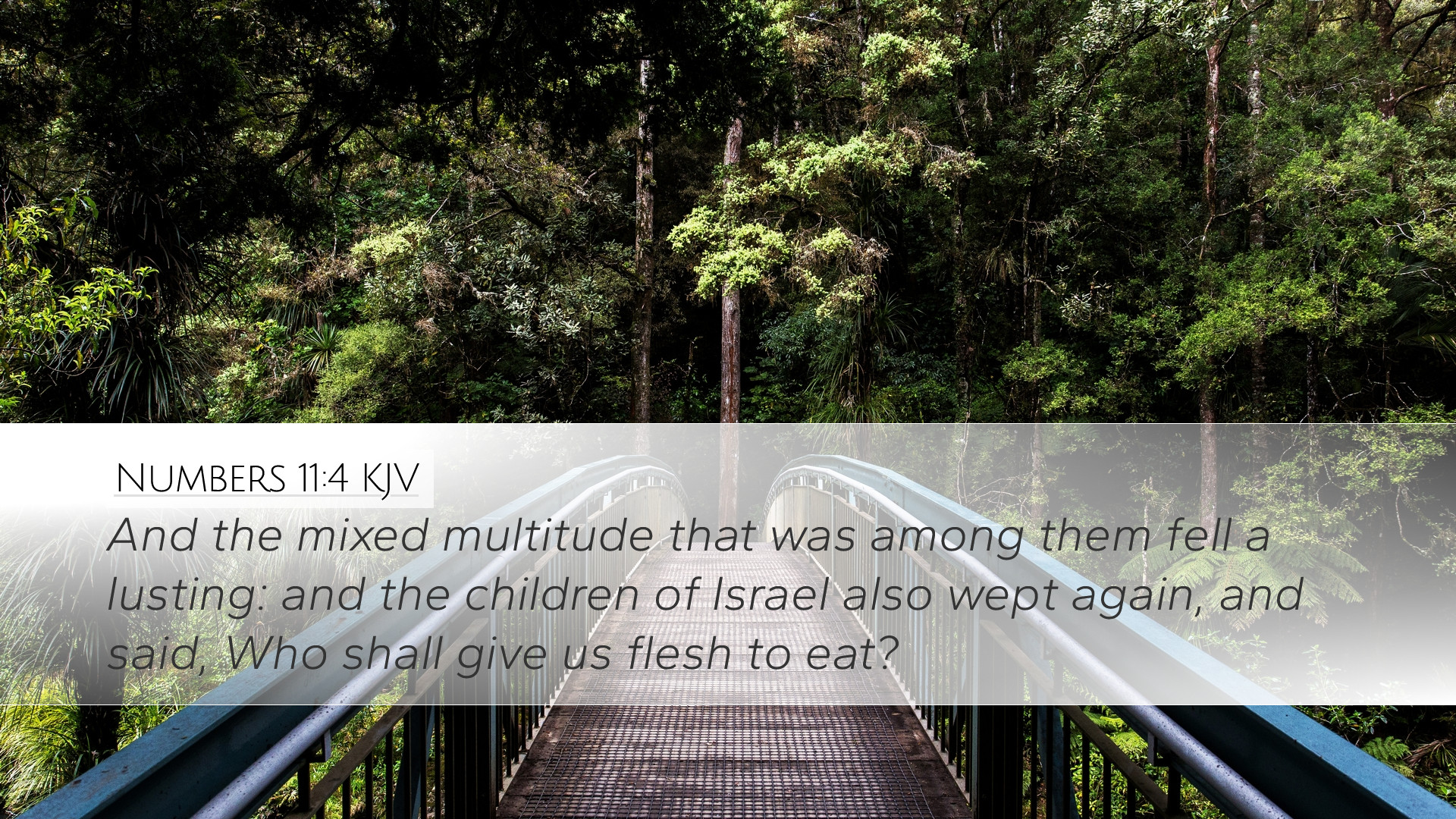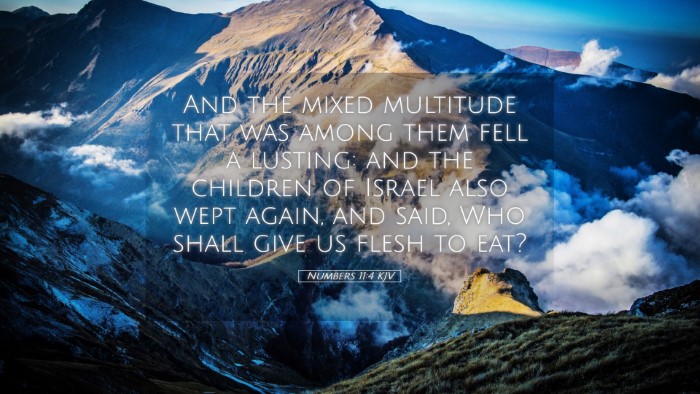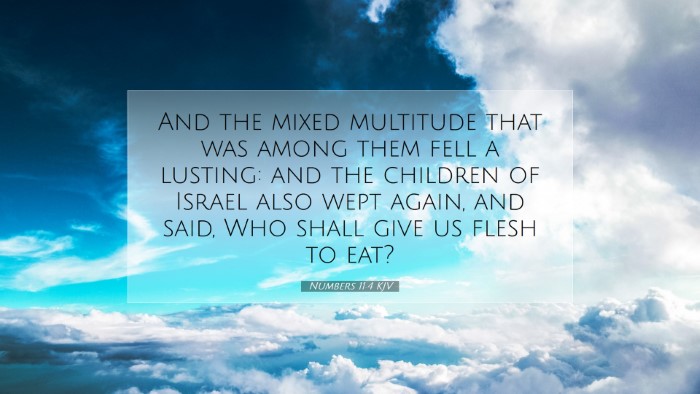Bible Commentary on Numbers 11:4
Introduction
Numbers 11:4 reads: “And the mixed multitude that was among them fell a longing; and the children of Israel also wept again, and said, Who shall give us flesh to eat?” This verse offers insight into the struggles of the Israelites during their exodus from Egypt and brings to light the theme of dissatisfaction among God’s chosen people. This commentary synthesizes insights from several public domain commentaries to offer a comprehensive view.
Contextual Background
Historical Context:
This passage is situated within the early chapters of the Book of Numbers, which anchor the Israelites' journey through the wilderness following their deliverance from Egypt. The people had experienced miraculous provisions, yet their longing for the food of Egypt reveals a struggle with faith and memory.
Mixed Multitude:
The verse references a "mixed multitude," indicating that not all who followed Moses were Israelites. This group likely included Egyptians and other non-Israelites who had joined the Israelites in their exodus. As Adam Clarke notes, this “mixed multitude” can be seen as a source of discontent, stirring up rebellious sentiments within the community.
Thematic Analysis
Longing and Discontent:
The crux of the verse is the longing expressed by the people. Matthew Henry highlights that the Israelites’ desire for flesh is not merely about food but reflects their deeper discontent with God’s provisions. Despite God's sustenance, represented by manna, they yearn for the tastes and comforts of their past.
- Manna as a Symbol: Manna is often considered a divine sustenance meant to symbolize God's providence. Yet it became monotonous to the Israelites, leading to an emotional reaction of longing for something different – a manifestation of spiritual dissatisfaction.
- Influence of the Mixed Multitude: The influence of the mixed multitude can be regarded as a catalyst for the Israelites’ dissatisfaction. Their voices may have amplified the discontent, suggesting a more profound lesson about the dangers of negative influence within a community.
Theological Implications
The Sovereignty of God in Provision:
The narrative demonstrates that God’s provision should elicit gratitude and trust. Albert Barnes emphasizes that the craving for flesh illustrates humanity’s inclination toward ingratitude and the tendency to forget the blessings received. Theologically, it raises questions about the nature of God’s provision and the human response to it.
God's Reaction:
God’s eventual response to their complaints—sending quails—serves as a double-edged sword. On one hand, it is an act of mercy; on the other, it carries the weight of judgment, as it leads to a plague among the people (cf. Numbers 11:33). This dual nature of God's response showcases His character—both loving and just.
Pastoral Reflections
Learning from Israel’s Experience:
For pastors and theological leaders, there is a poignant lesson in the reactions of the Israelites. The cry for flesh signifies a spiritual condition that many congregations may experience. It serves as a reminder to guide communities towards cultivating gratitude and appreciation for God’s ongoing provision in all forms.
Encouraging Faith in Difficult Times:
In the same vein, it provides a pastoral opportunity to encourage believers during times of spiritual dryness or dissatisfaction. Reminding congregants of God’s faithfulness in the past can counteract the human tendency to forget God’s provisions.
Conclusion
Numbers 11:4 presents rich insights into the human condition and the relationship between God and His people. As Matthew Henry observes, the folly of the Israelites serves as a mirror reflecting every generation's struggles. A balanced understanding of this passage encourages readers to remain steadfast in faith, acknowledge God’s consistent provision, and be wary of influences leading them away from gratitude and trust in God. Leaders and scholars alike are urged to approach this text with an openness to its warning against ingratitude and its call to deeper faith amidst trials.


